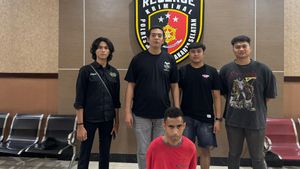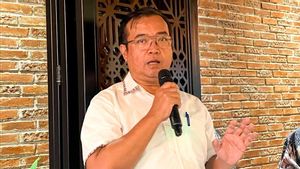JAKARTA - The National Survey Media (Median) released a survey on the level of public trust related to the handling of COVID-19, especially the vaccination program.
Based on the findings on netizens' perceptions, it turns out that only about 57.7 percent of the people who want to be vaccinated are. And those who answered did not know 19.7 percent, while 22.6 percent refused or didn't want to.
"If we look at those who say they don't want to be vaccinated, the largest percentage is at the age of 60 years and over, the largest percentage is 37.5 percent. This of course needs all of our attention to take care of our parents, grandparents, them. the elderly," said Executive Director of Median, Rico Marbun, in his presentation at a webinar discussion, Wednesday, July 7.
The reason the public wants to be vaccinated is because they get exposure to the right information. For example, 12.2 percent said they wanted to be vaccinated to avoid being exposed to Covid, then 9.6 percent to get antibody immunity, to maintain 8.5 percent immunity.
Meanwhile, people who do not want to be vaccinated are due to misinformation or lack of information.
So, said Rico, there are people who say they don't need to be vaccinated because they are sure they won't be exposed to the Corona virus 5.8 percent, they are afraid of side effects 2.7 percent, getting vaccinated does not guarantee 1.7 percent of being free of COVID.
"Then there were those who stated that they were sick after being vaccinated at 1.2 percent. They still doubted 0.5 percent. There were others who stated that there were 0.6 percent death cases, etc. So negative information about vaccines, especially in terms of health, is still very strong in the minds of netizens, ' explained Rico.
The survey was conducted with a Non Probability Sampling design. The google form-based questionnaire distributed through Facebook social media targets active Facebook users aged 17-60 years.
Questions are distributed proportionally to the population and spread on Facebook accounts in 34 Provinces. The results were collected as many as 1,089 respondents spread across 32 provinces.
The English, Chinese, Japanese, Arabic, and French versions are automatically generated by the AI. So there may still be inaccuracies in translating, please always see Indonesian as our main language. (system supported by DigitalSiber.id)












